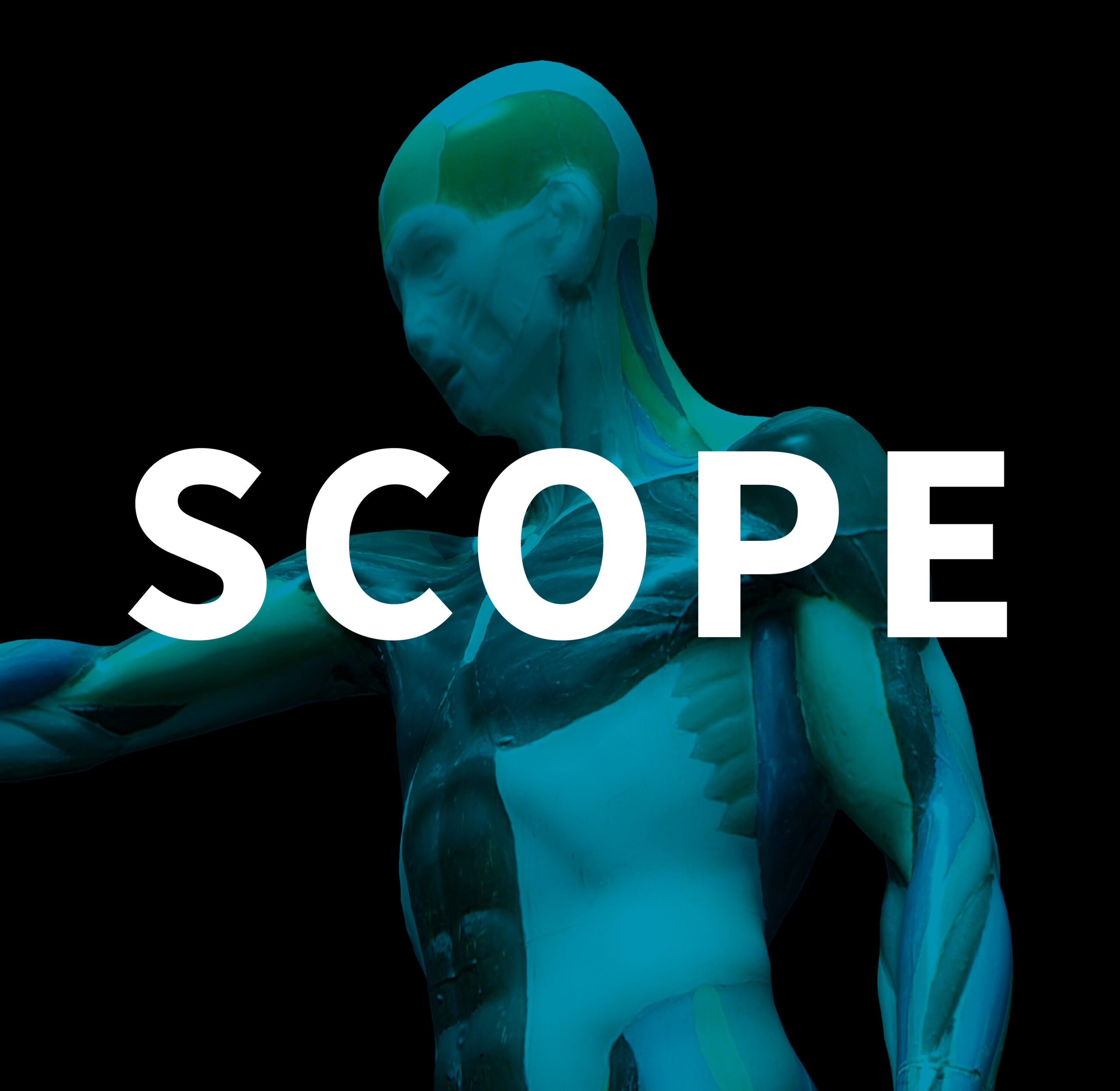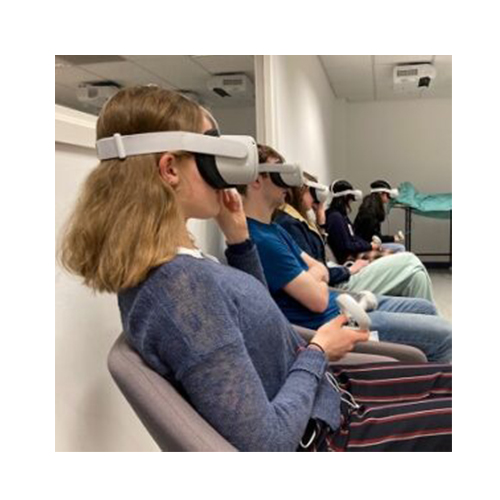The College of Medicine and Veterinary Medicine is home to three Digital Education units, supporting both undergraduate and postgraduate learning in all forms of delivery.
Chris McKenzie, Eoghan Clarkson and Herve Lacroix provide an insight into the team’s quest to establish a modern and digitally-enabled culture within CMVM and how they are going about it.
Digital education sits at the fulcrum of technology – providing us with the opportunities to engage learners, personalise learning experiences, widen access, and make it far easier for learners and educators to actively engage. It can be as simple as asking students to use a mobile device to access learning materials, or providing an interactive activity for students to test understanding.
Projects have enabled students to take part in an interactive virtual simulation, use a Doppler blood pressure simulator, take an empathy lesson by ‘being’ the patient using 360 video, and much more.
A wide range of pedagogical approaches can be offered in designing and delivering a fully interactive online course or any other use of digital technology that enhances learning. Synchronous and asynchronous learning, audio-visual production, assistance in the development of digital learning resources, discussion boards and digital portfolios – all of these options are supported by the College’s Digital Education units.
The COVID-19 pandemic magnified the contribution of digital technologies in higher education, and prompted a renewed focus on the successful integration of digital learning and teaching across a variety of contexts and settings.
What isn’t digital education?
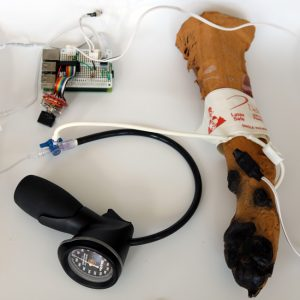
Assembled Doppler Blood Pressure Simulator
The term digital education is frequently conflated with IT, and often regarded as a “bolt-on” or an optional extra. However, there is a vital role for the Digital Education units to play in “adding value” to learning design and in the co-creation of education with academic and teaching staff.
The units provide a structure not only for academics, but also for professional services staff, which allows the time and resource for the skills development needed to exploit the potential of technology in learning. This has enabled the increased use of digital technologies across the undergraduate and postgraduate programmes, and ensures that the student experience benefits from the effective use of University systems such as Blackboard Learn, Media Hopper and Top Hat.
It started at the Dick Vet
For many years, the College of Medicine and Veterinary Medicine has been recognised as a centre of excellence for online teaching. However, many of the activities associated with digital education in the past appeared in pockets of good practice that were often limited to individual programmes. A solution to the inconsistency, and to increase effective and efficient use of resources, was to have College-wide engagement in the establishment of a coordinated approach to new developments and the benefits of technology use.
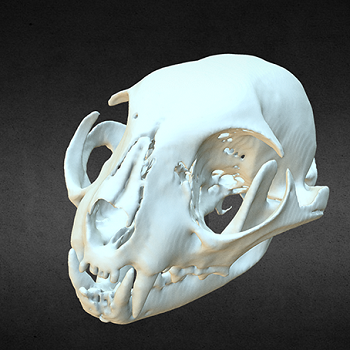
Scottish wildcat skull
The R(D)SVS recognised this, and in 2008, established a Digital Education Unit. Since then, two further units were created in the Medical School, and in 2023, CMVM has approximately 16 people working in digital education across the College supporting undergraduate and postgraduate learning in all forms of delivery.
Award winning
For an exceptional contribution during the Covid-19 pandemic, the Digital Education units were awarded ‘CMVM Best Team’ at the College Staff Recognition Awards in 2021, something that recognises the immense efforts of both teams. The units’ expertise in digital pedagogies proved essential during the transition of on-campus programmes to the online environment and hybrid learning.
The award nominations don’t stop there, with various projects shortlisted as finalists in the Higher Herald Education and the Times Higher Education Awards over the years.
Collaborative working
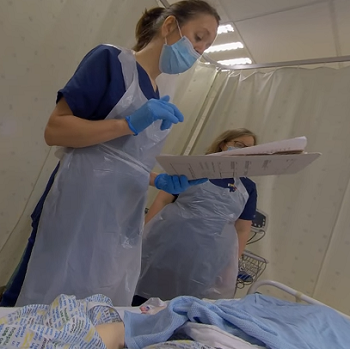
Clinical skills team in empathy 360 video
The Digital Education units also undertake bespoke projects and are happy to discuss and advise on any aspect of the use of technology in teaching. This may include an idea that you would like to develop or enhancing an existing activity. By combining the experience and knowledge of academics with the skillsets of team members within the Digital Education units many successful projects have been born making use of increasingly available tools which can be tailored to suit.
Looking ahead
Driving change across the College of Medicine and Veterinary Medicine will be a key requirement for the development of a digital education strategy as we work towards the University’s Strategy 2030. The Digital Education units were set up to carry out research, provide leadership in curriculum planning, and to embed digital tools and technologies into all learning and teaching provision. Their objective is to support the move away from traditional methods of learning and delivery towards a modern, digitally-enabled culture across the College.
View example projects
Interactive virtual simulation
Using immersive technology to enrich healthcare education
Doppler blood pressure simulator
Empathy lesson using 360 video (drag screen to look around)
Chris McKenzie, Senior Lecturer, Edinburgh Medical School
Eoghan Clarkson, Digital Education Unit Manager, The Royal (Dick) School of Veterinary Studies and The Roslin Institute.
Herve Lacroix, Digital Education Manager, Edinburgh Medical School
